Vernice Hall had always beaten the odds.
Doctors never expected her to survive the bullet that ripped through her brain one night in 2007, just steps away from her north Minneapolis home. They counseled her parents to prepare for the worst. Instead, the couple prayed for a miracle.
Vernice hung on. The 12-year-old fought through multiple surgeries to remove a piece of her skull and spent weeks on a ventilator. Eventually, she regained consciousness. But the shooting left the once vibrant little girl with massive brain damage that required round-the-clock care, stealing her ability to walk or talk.

Richard Tsong-Taatarii, Star Tribune
Despite her disability, Vernice - better known to friends and family as Star - found creative ways to communicate her needs and express her love. She earned a high school diploma, danced to Beyoncé and never lost her fiery disposition. Over the next 17 years, she surpassed each grim prognosis, modeling a form of resilience and strength that often shocked medical staff and her own family.
"Every time they tried to count her out," said her older sister, Temeka Wickliffe, "she proved them wrong once again."
Star died after a short illness Feb. 16 at her mother's house in St. Paul. She was 29.
An autopsy is pending. If the medical examiner rules that her death was caused by complications from the gunshot wound, Minneapolis Police will reopen the case as a homicide.
A stray bullet
On Sept. 22, 2007, Star was sitting on the stoop outside her house on the 1800 block of Oliver Avenue N., where several dozen relatives had gathered for a party. When she got up to escort a friend down the block, a series of shots pierced the air.
One round, intended for another target, struck Star's forehead. Her 14-year-old brother threw himself over her body. Their father ran outside to find them. His "Lil Star" lay still.
"I lost it," Steve Hall told the Star Tribune at the time. Two years earlier, Hall's 18-year-old son was shot dead in Milwaukee.
He could not contemplate their daughter meeting the same fate. But here she was, hospitalized in critical condition, because of senseless violence between idle youth. The spunky seventh-grade basketball player who loved Spanish class, hip-hop and the cartoon "SpongeBob SquarePants" might never wake up.
So Star's parents took a leap of faith. Steve and Vernice's mother, Latice Smith Hall, married at her bedside the same day they decided to pull her off the breathing machine. Their older children crowded the hospital room to watch their exchange of vows.
Minutes later, Star opened her eyes.
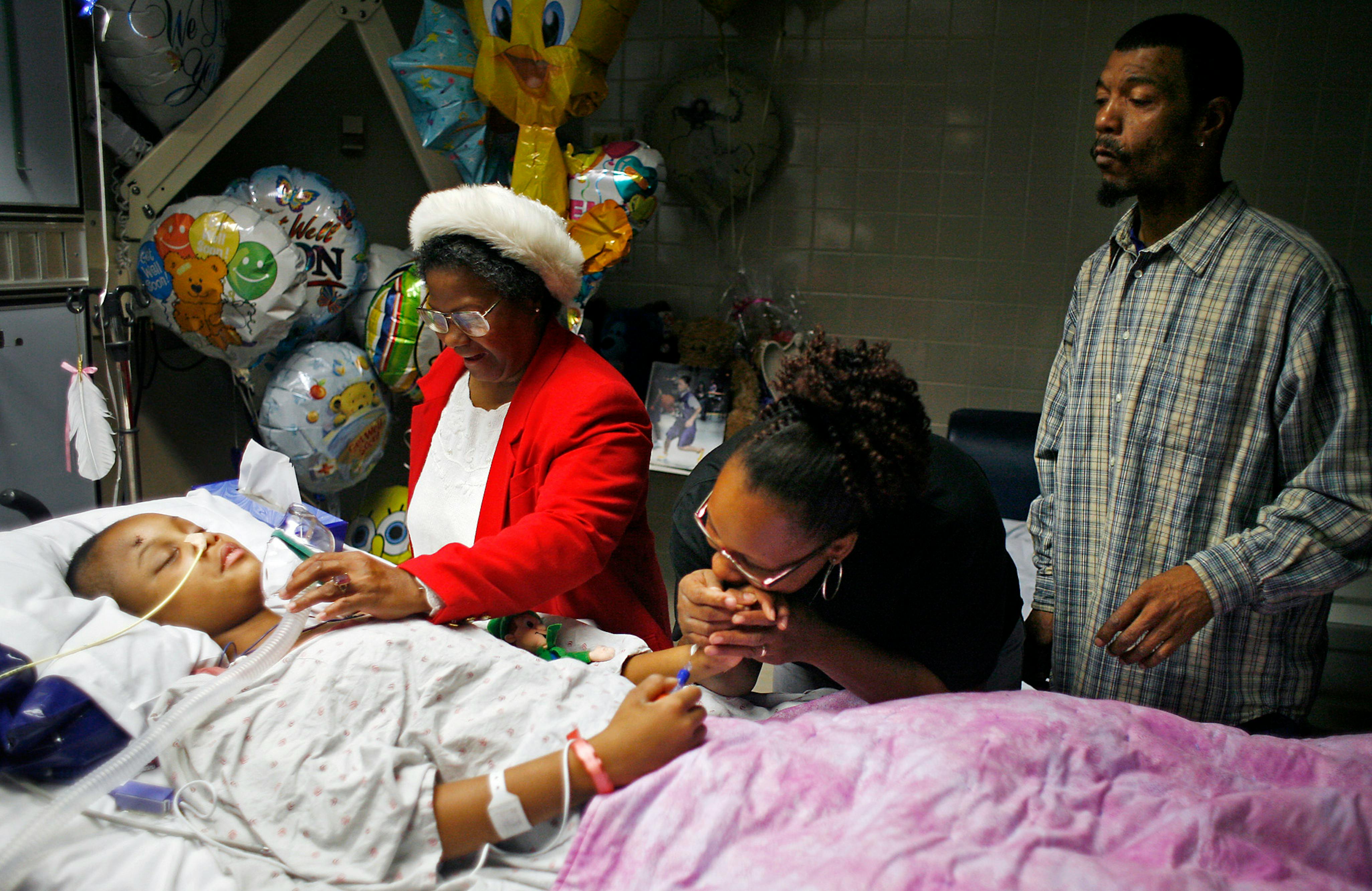
'Every single day I cried'
In the aftermath of the shooting, witnesses told Hall that they saw four young men climb out of a black truck, wait behind a fence and fire on several people as they left the party around midnight. Police suspected Star had gotten caught in the middle of a gang dispute.
Within 48 hours, investigators nabbed two teenagers in connection with the case. Both were charged as adults with attempted first-degree murder. Yet, Star would never see justice in court.
One 17-year-old boy was acquitted at trial. (Even Steve Hall publicly doubted his guilt.) Then-Hennepin County Attorney Mike Freeman speculated that witnesses were intimidated into changing their stories on the stand. He vowed to prosecute the co-defendant, 18-year-old Tywin Marcell Bender.
Two months later, Freeman's office was forced to dismiss the charges, citing the reluctance of witnesses to testify - though he remained convinced that Bender pulled the trigger. The news came as a blow to Star's family, who'd been led to believe that the case against Bender was stronger.
"Whoever did this, they will be dealt with," Hall said in 2008. "God is not going to let them get away with it."
Both teens maintained their innocence. But Bender continued to have scrapes with the law. In 2016, he was sentenced to 10 years in prison following convictions for firearm violations and plotting to retaliate against two federal witnesses who testified against a gang leader. He remains incarcerated at a federal penitentiary in Marianna, Fla.
The outcome lacked closure and it became difficult to find peace, especially in the early days of Star's recovery.
"Every single day I cried," Smith Hall recalled in a recent interview. "Every time I look at her, every time I change her, I feed her and think: 'Who did this to my baby?'"
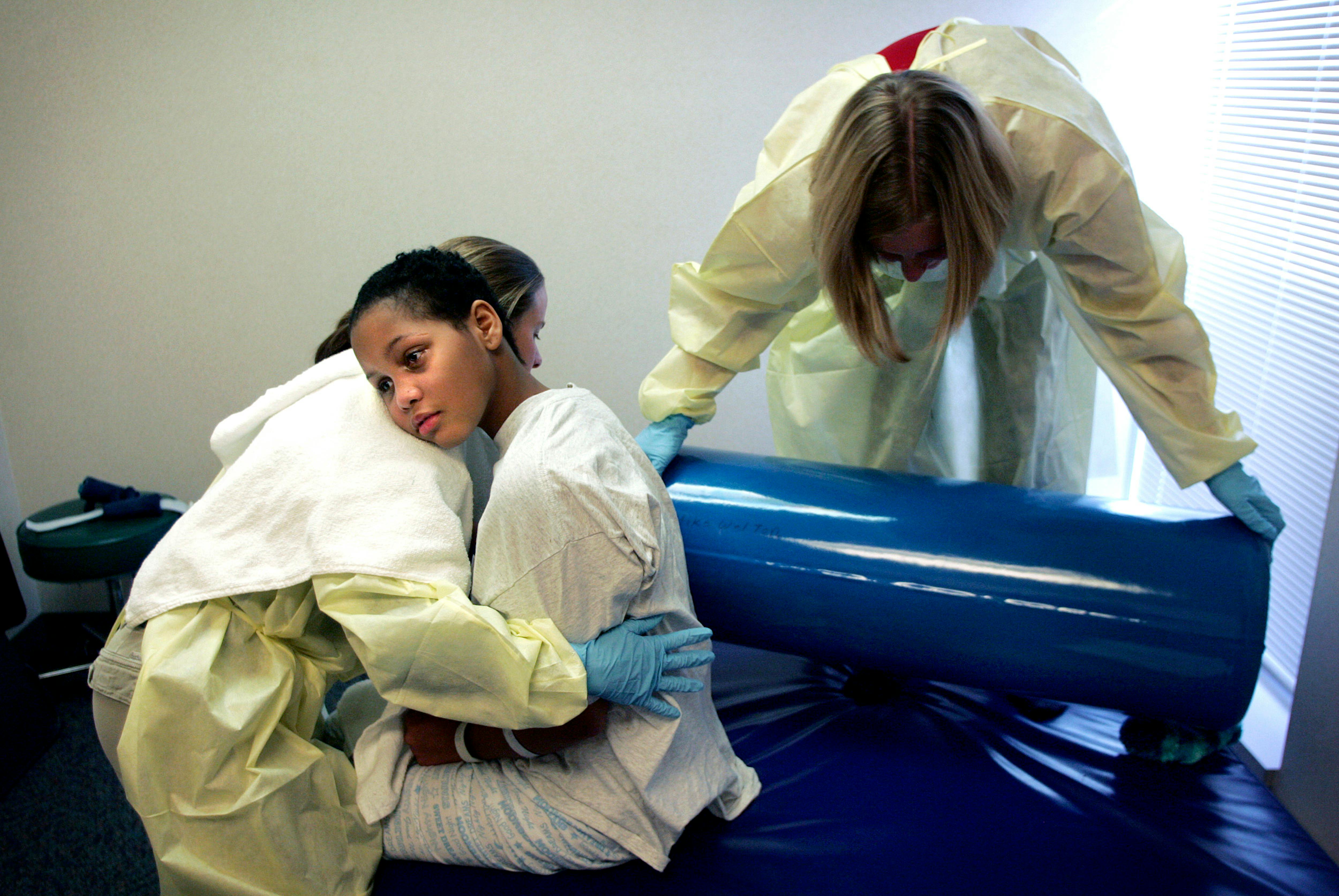
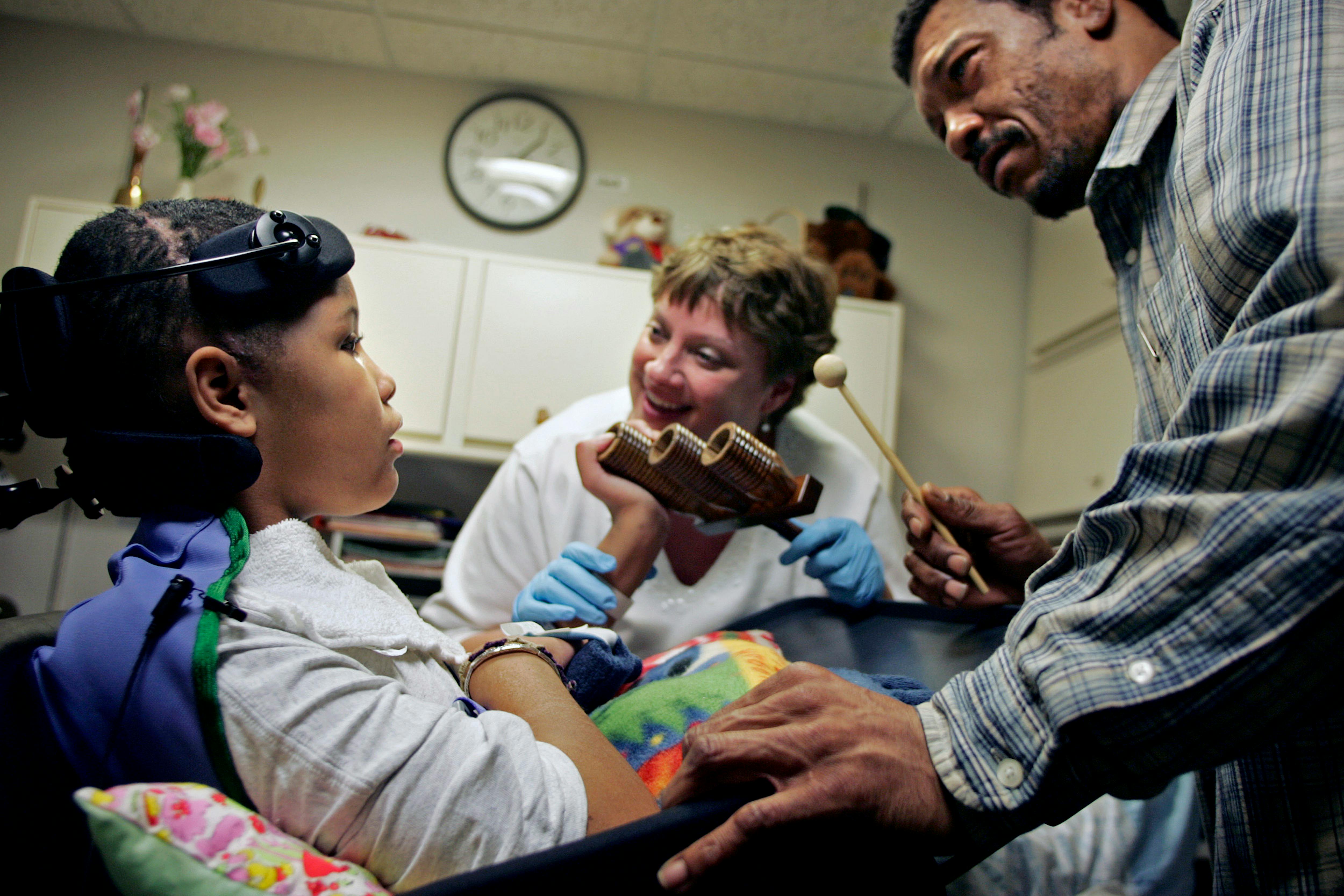
'She didn't stop living her life'
After 112 days in the hospital, Star was finally cleared to go home.
Progress during daily physical therapy sessions had been slow. The massive brain injury robbed her of complex cognitive functions, but over time, Star was able to regain some basic response skills and recognize her family and friends.
She learned to blink to communicate - one long blink meant yes; two short blinks meant no - raise her right arm to wave, give hugs and reach for objects. Medical staff noticed that Star reacted more to her father's voice than others, so he became a constant at her side, gently pushing Star during sessions. He taught her how to snap her fingers.
As time passed, their other children began to ask whether Star would ever speak again. The Halls were hopeful, but knew the truth. They focused their energy on providing the best level of comfort and care to their daughter they could, tending to her feeding tube and constantly readjusting her limbs to avoid bedsores.
Every morning, Star greeted them with a big smile.
But the stress and sorrow of the shooting took its toll. Steve Hall unexpectedly died two years later, at age 46, leaving his wife as Star's primary caregiver.
"He cried himself sick," Smith Hall said, wiping away tears. "I had to stay strong because I had to take care of her."
Between school and weekly therapy sessions, Star wiled away the hours binging reality TV with her mom - she loved "The Real Housewives of Atlanta" and the Kardashians - and dancing to power ballads with her siblings. She happily tracked her young nephews with her eyes when they came over to play, zooming matchbox cars around her wheelchair.
Star always knew how to get attention and articulate her mood. "If she was mad at you, she'd kick you," her younger sister, Elexus Hall, said with a chuckle.
Later on, an electronic tablet helped Star vocalize commands. One button announced that she was hungry, another declared that she'd like to hear some music. Her favorite: "Hi, my name is Star!"
"She had very expressive eyes, so her eyes would always tell you the story," said Elliot Foster, a direct support provider who spent the last three years transporting Star to medical appointments and social activities.
During regular visits to Gillette Children's Hospital in St. Paul, where Star received Botox injections to increase flexion in her legs, Foster put on impromptu Beyoncé concerts to distract her during the procedure. He played the songs on his phone and belted the lyrics in a sing-a-long beside the staff.
Occasionally, when he buckled her seatbelt, Star would playfully knock off his hat.
"What she could show you of her personality, she showed off," he said, admiring her spirit. "Even after everything that happened, she still didn't stop living her life."
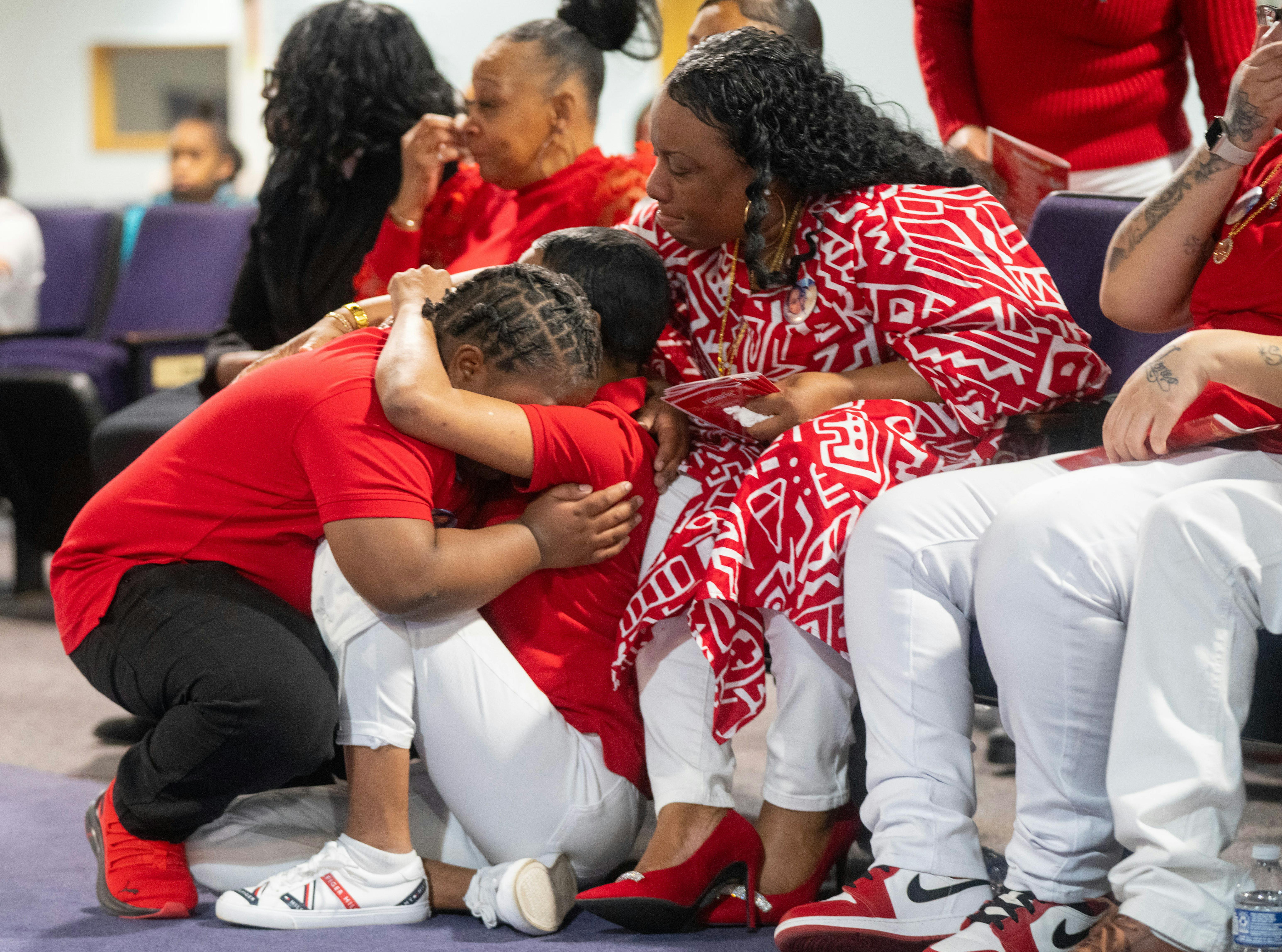
A life of 'tragedy and triumph'
Funeral services were held last week at Shiloh Temple on West Broadway, the Northside church that adopted the Hall family during their darkest hour. Its congregants welcomed Star home from the hospital after the shooting and helped them navigate a torrent of grief in the years to come.
As the Rev. Arnetta Phillips examined the room of mourners dressed in red - Star's favorite color - she sought to soothe the family's pain once more, extolling the blessings of time.
"The doctors had given up on Star and said she wasn't gonna live past the night," Phillips said. "God gave her 17 extra years."
In return, she said, Star taught them endurance and the strength to overcome life's greatest obstacles.
"Star's life was one of tragedy and triumph," confirmed the Rev. Zoe Drookwimyternngbeh.
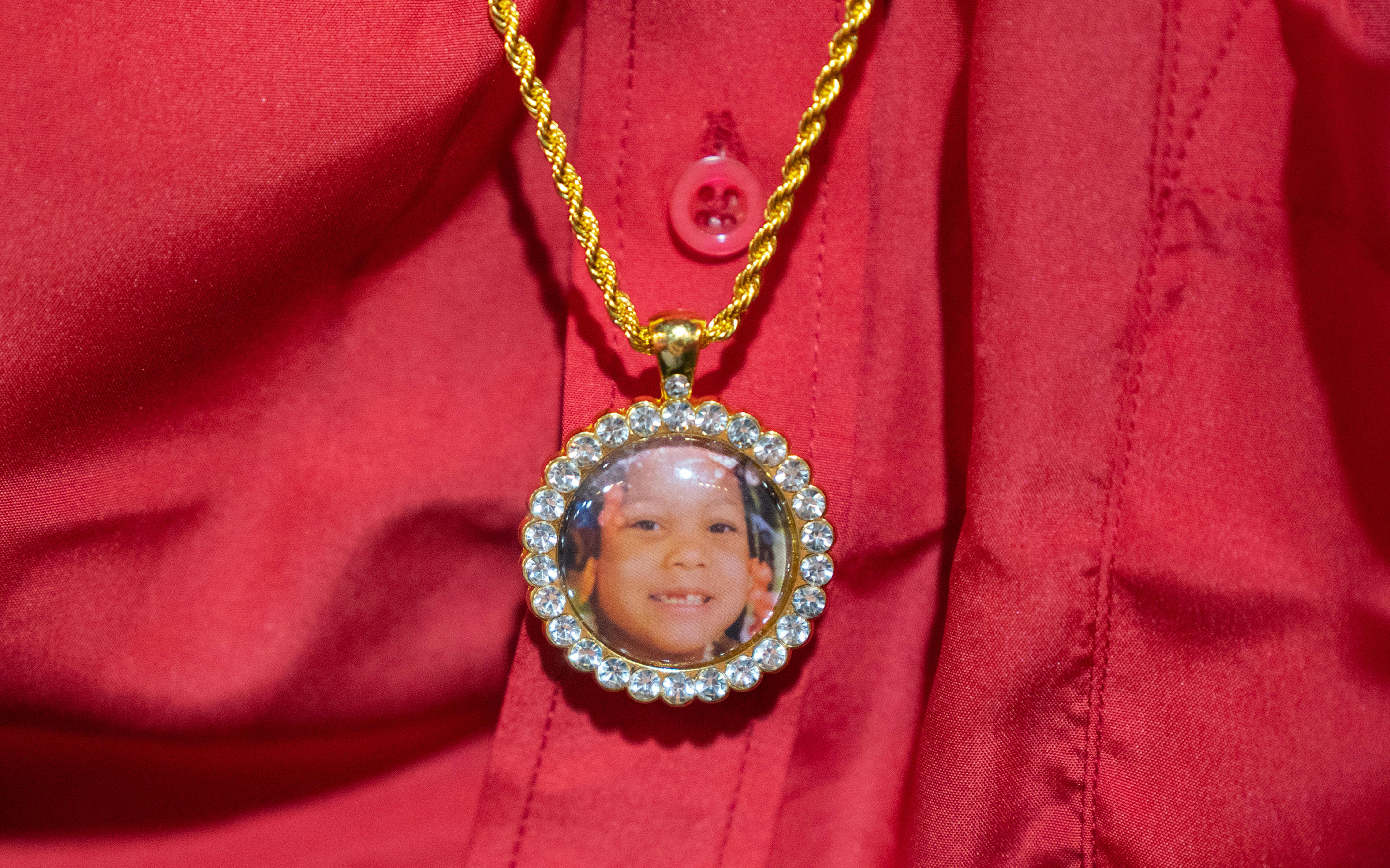
Eulogies praised Star's unwavering positivity and brilliant smile. Several siblings wept recalling the tireless dedication their mother showed her each day.
One by one, a stream of relatives approached the coffin to say their final goodbyes and plant a gentle kiss on Star's forehead.
The day before, sisters Elexus and Gloria twisted her hair into a crown, beset with shimmering rhinestones and butterfly clips. Star lay waiting in a silk-lined white casket, clutching a single red rose.
"She was loved - that's why she lived so long," her mother said. "She was loved."
Those wishing to contribute to Star's tombstone can make a donation on GoFundMe at https://www.gofundme.com/f/in-memory-of-star-vernice-hall.
